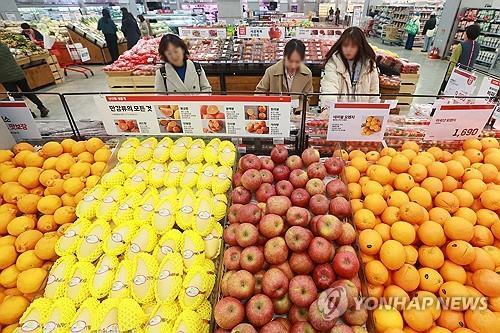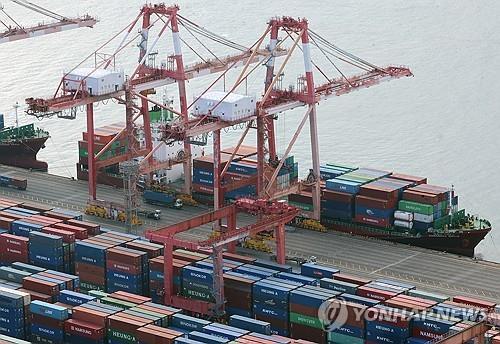South Korea's central bank said Thursday it will maintain its current restrictive policy stance as any hasty rate policy change may undermine market confidence and further raise already high household debt.
In its latest monetary policy report, the Bank of Korea (BOK) said the country's inflation is treading on a downward path with core inflation also logging a mild slowdown but added that there are still high uncertainties at home and abroad.
"It is still early to say that consumer price growth is converging into core inflation given volatile commodity prices and geopolitical risks," the central bank said. "Inflation is forecast to stabilize to the early 2 percent level by the end of the year, but there are still risks before the final stage of the inflation stabilization period," it added.

The BOK said it needs to keep tightening its monetary policy mode as any hasty policy pivot may hurt confidence in its rate policy and further boost household debt.
South Korea's inflation ticked up to over 3 percent in a month in February on high prices of fresh food items and energy.
Consumer prices, a key gauge of inflation, rose 3.1 percent on-year last month, compared with a 2.8 percent increase a month earlier, marking the first time in four months that the price growth accelerated in an on-month term.
The core inflation, which excludes volatile farm and energy prices, rose 2.5 percent on-year last month. The central bank's mid-term inflation rate is set at 2 percent. Inflation rose 3.6 percent on-year last year, slowing from a 5.1 percent gain in 2022 but marked the steepest on-year rise since 1998, when inflation surged 7.5 percent in the wake of the Asian financial crisis.
Excluding the 2022 figure, last year's price growth was the steepest since 2011, when consumer inflation spiked 4 percent. For the year, the central bank eyes a 2.6 percent gain in inflation.
Early this month, the BOK kept its key interest rate unchanged at 3.5 percent for the ninth straight time. The central bank delivered seven consecutive rate hikes from April 2022 to January 2023.

This file photo taken Jan. 1, 2024, shows a port in South Korea's southeastern city of Busan. (Yonhap)
As to the economic recovery, the central bank said an economic recovery will be led by exports despite a delayed improvement in private spending. A recent recovery in outbound shipments has been led by the IT segment, with exports of chips and AI-related goods expected to continue to rise, the central bank said.
"The local economy will be supported by better-than-expected exports of expanded demand for IT products and a sound U.S. economy, but geopolitical risks, any policy change in major economies and lingering woes in the construction sector may pose downside risks," it added.
Last year, the economy grew 1.4 percent. But its expansion slowed from the previous year's 2.6 percent gain and the 4.1 percent advance in 2021.
For the year, the central bank forecast a 2.1 percent gain. Regarding household debt, the central bank said its growth will slow down, but its cycle may be affected by a trend in home prices.
Last year, home loans increased 11.5 trillion won, a turnaround from a 6.6 trillion-won decline the previous year.
Soaring household debt has been a nagging concern for policymakers here as highly indebtedness is feared to curb a recovery in domestic demand.
Household loans extended by banks rose for the 11th straight month in February, led by home-backed loans that increased 2 trillion won from a month earlier.
The February gain decelerated from a 3.3 trillion-won rise the previous month and marked an on-month increase for 11 months in a row.
sam@yna.co.kr

